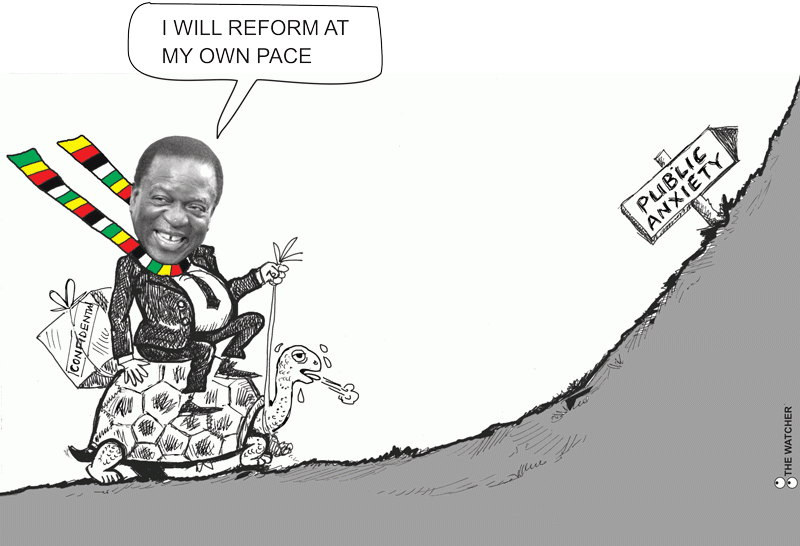
BY TATIRA ZWINOIRA
SHARP differences emerged between Zimbabwean authorities and the Africa Export–Import Bank (Afreximbank) on Friday over the value of loans extended by the regional lender to Harare.
During a ceremony to hand over land on which Afreximbank will construct its US$100 million southern African regional headquarters in Harare, RBZ governor John Mangudya said the lender had extended US$9 billion in bailouts to Harare in the past 25 years.
But Afreximbank president Benedict Okey Oramah immediately said the financial institution, one of only a few still extending loans to Zimbabwe, had injected US$13 billion into the southern African nation’s economy.
Most of this money came through during a period when the global financial system had turned its back on Zimbabwe after 2000, following massive defaults.
“Afreximbank has over the past 25 years provided and made available more than US$9 billion to this economy,” Mangudya said in remarks made during the ceremony in Harare.
However, when Oramah delivered his remarks, he emphasised that the bank had on its books a figure of US$13 billion in loans extended to Harare.
“It (Afreximbank) has stood with Zimbabwe through good and bad times, through good and tough times, always focused on making it easier for the people of Zimbabwe. Since inception, the bank has disbursed — and I must contradict my colleague (Mangudya) US$13 billion to support the Zimbabwe economy,” he said.
- Chamisa under fire over US$120K donation
- Mavhunga puts DeMbare into Chibuku quarterfinals
- Pension funds bet on Cabora Bassa oilfields
- Councils defy govt fire tender directive
Keep Reading
“In the past few years, the bank has disbursed US$6 billion of that US$13 billion as many other institutions shied away from supporting the country. Afreximbank interventions have on many occasions made it possible for food to be on the tables,” he added.
The drama over a huge discrepancy totalling US$4 billion, did not end there.
After Oramah made the “correction”, George Guvamatanga, permanent secretary to the Ministry of Finance and Economic Development, stood up and maintained that Zimbabwe had received US$9 billion from Afreximbank, with most of it repaid.
“For the longest period of time, they (Afreximbank) were the only ones who were willing and able to finance our development programmes and the governor did indicate that the bank lent a total amount of US$9 billion, availed by Afreximbank to the government of Zimbabwe,” he said.
“But I think we have also been very good borrowers because a large chunk of that amount has been repaid.
“I am only mentioning this so that the journalists here don’t go back to newsrooms and say ‘the government of Zimbabwe owes Afreximbank US$9 billion’, no.
“We borrowed US$9 billion and we have repaid a bigger chunk of those borrowings.”
Last week, Afreximbank signed financing agreements with four Zimbabwean entities worth US$188,6 million at conclusion of the second Intra-African Trade Fair that took place in Durban, South Africa.
The regional lender signed a US$110,4 million deal with Zimbabwe Electricity Transmission & Distribution Company (ZETDC) to help the firm improve the power sector in the country.
Funding from the loan facility has been earmarked to help ZETDC improve revenue collection through the roll out of more smart and prepaid meters.
This will help the firm pay off creditors and improve creditworthiness.
In addition, Afreximbank provided the Central African Building Society with a US$40 million facility.
The transaction is also meant to help the lender support the development of the energy sector in Zimbabwe, which has recently been hit by rolling blackout, mostly caused by ageing plants.
The third transaction, which is a US$28,2 million dual-tranche facility, was agreed with CBZ Bank to provide foreign currency in Zimbabwe, while ZB Bank signed a US$10 million term sheet that will enable it to participate as one of syndicated lenders in a facility for the energy sector in Zimbabwe.
The bank will build the regional HQ, which will also house its Harare office, on a 15 000 square metre stretch of land in central Harare.
Local Government and Public Works minister July Moyo handed over the land.
The complex will comprise a 10-storey hotel tower, seven-storey offices complex a two-storey building of conference space.
Afreximbank’s loans to Zimbabwe had been a subject of controversy.
In December 2020, the High Court of Zimbabwe ordered Finance minister Mthuli Ncube to publish details of all loans and guarantees incurred by the government from January 2017 to December 1, 2020 with Afreximbank and other international financiers.
The published deals revealed that during the period, the government had borrowed more than US$2 billion from Afreximbank.











